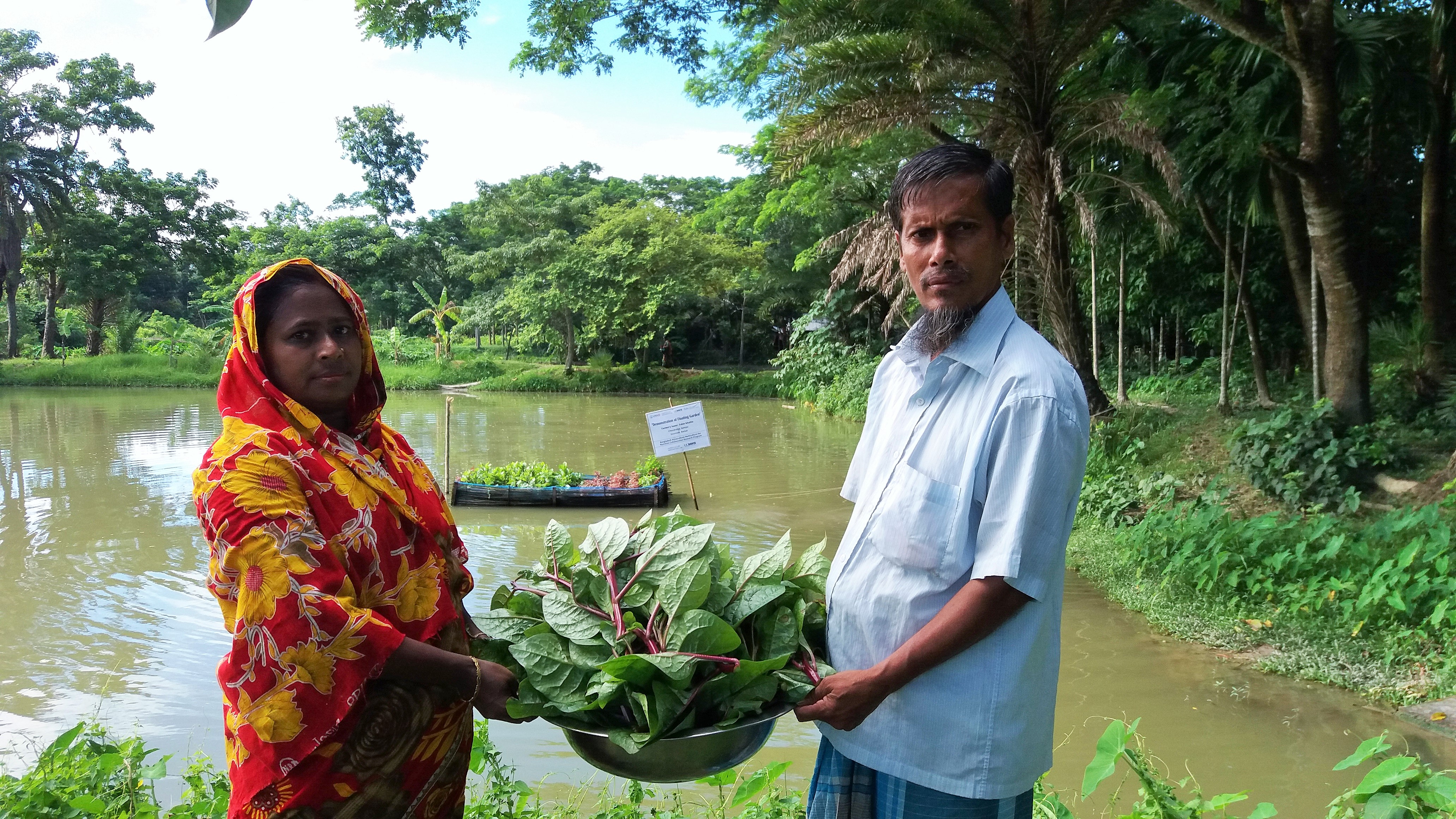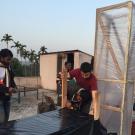
This collaborative project is funded by an associate award to the Nutrition Innovation Lab team at Tufts University. The primary questions the Nutrition Innovation Lab seeks to answer in Bangladesh are:
- What have been the impacts of different approaches linking agriculture, nutrition and health on dietary diversity and nutritional status (i.e. geographic co-location of programs, integration of interventions, combinations)?
- Have programs to increase farmers’ incomes resulted in improved nutrition when not coupled with nutrition programming?
As a sub-contractor on this multi-Innovation Lab project, the Horticulture Innovation Lab implements three different technologies to test the potential of horticulture and aquaculture innovations to improve income, consumption and nutrition by increasing year-round availability of aquaculture and horticulture products. The technologies being tested are floating gardens, cool rooms, and chimney solar dryers, each implemented at the community level. The team is demonstrating the value of technologies that improve the shelf life of foods, and thus increase the economic and nutritional benefits of aquaculture and horticulture commodities.
Floating gardens: The Horticulture Innovation Lab evaluates the feasibility, utility and economic sustainability of floating gardens on fishponds. The floating garden beds are made from local materials, such as bamboo, and plastic floats — with local materials as growth medium. Specific issues addressed include:
- The interaction between the gardens and the fish in pond culture
- Productivity of floating garden vegetables, number of crops per season
- Effects of nutrients in the pond on plant growth, and of nutrients provided to the plants on fish productivity
- Effects of floating gardens on water quality (temperature, oxygen content, nutrient load.)
- Pond microbial load and effects on safety of produce harvested from floating gardens.
Cool rooms: The second technology implemented is small-scale cool rooms, to assess the impact of cool storage on the availability and quality of fruits, vegetables and fish in the communities, particularly in the off-season. The insulated rooms are fitted with a window air conditioner and a CoolBot controller. The team is also studying the impact of cool storage on market prices for farmers’ goods.
Chimney solar dryer: The third technology, implemented in three additional communities, is the UC Davis chimney solar dryer for rapid solar drying of fish, vegetables and fruits. The team is analyzing the availability and cost of construction materials; the efficiency and safety of using the dryer for drying fish, vegetables and fruit as compared to traditional methods; the effectiveness of the dryer year-round, particularly in the rainy season; and methods for storing the products after drying.
The researchers use data collected from households (those using and not using these technologies) to examine differences relating to agricultural productivity, changes in income-earning activities, priority investments at household level, behavior change in terms of health seeking and hygiene, and changes in diet quality. Horticulture Innovation Lab researchers are conducting qualitative interviews with households selected to use the horticultural technologies, to assess their perspectives on economic viability, desirability, time demands, repair and sustainability issues related to the new technology.

